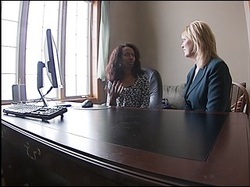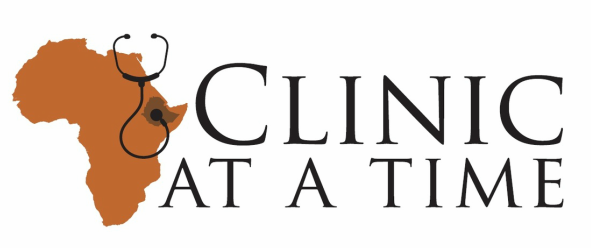
WAUNAKEE (WKOW)-- While many have complaints about our country's healthcare system, it certainly could be worse.
A nurse at St. Mary's in Madison knows first-hand that not everyone is as fortunate as we are, and is doing something about it.
Mulu Yayehyirad is "Someone You Should Know."
Mulu calls Waunakee home now.
But she was born and raised in the northwestern part of Ethiopia.
As with many developing countries, there is a lack of basic necessities and conditions to treat the sick are substandard.
Being a nurse herself, Mulu understands what it takes to take care of people.
This tiny clinic serves a half-million people each year.
Among many of the deficiencies, there are no ambulances to transport people.
So patients show up on wooden beds carried by family and neighbors.
Some have traveled 7 to 8 hours just to get to the clinic.
The doctors and nurses try to do the best they can with what they have.
"There's no running water so as you can see they keep the water in those containers in those buckets there," said Mulu. "Either to wash the baby, to clean up things."
Mulu can not turn her back on her first home.
"People die because of diarrhea because there's no IV fluid to replace the dehydration and things like that, so that's what I'm trying to do," says Mulu.
Mulu is helping through the non-profit she and her husband founded in 2007 called Clinic at a Time.
"I was fortunate enough to have all the things that I had growing up, but next door neighbor and people you went to school with, people you know in the neighborhood they are suffering because of this kind of condition in the clinics," says Mulu. "So you just can't ignore something like that."
Mulu knows the difference the simple things we take for granted can make in Ethiopia.
Her first project was building basically, a waiting room.
"Most of the clinics are lack of is the shelter area, so when people come from rural areas for medical help they stay outside and there is no shelter," says Mulu.
Mulu hopes to do even more.
"Once you see it, growing up watching people suffer, it is very hard to just not think that it ever happened and not to do anything about it," says Mulu. "Even if it helps one of two people to survive from unnecessary death, then it's worth it."
A nurse at St. Mary's in Madison knows first-hand that not everyone is as fortunate as we are, and is doing something about it.
Mulu Yayehyirad is "Someone You Should Know."
Mulu calls Waunakee home now.
But she was born and raised in the northwestern part of Ethiopia.
As with many developing countries, there is a lack of basic necessities and conditions to treat the sick are substandard.
Being a nurse herself, Mulu understands what it takes to take care of people.
This tiny clinic serves a half-million people each year.
Among many of the deficiencies, there are no ambulances to transport people.
So patients show up on wooden beds carried by family and neighbors.
Some have traveled 7 to 8 hours just to get to the clinic.
The doctors and nurses try to do the best they can with what they have.
"There's no running water so as you can see they keep the water in those containers in those buckets there," said Mulu. "Either to wash the baby, to clean up things."
Mulu can not turn her back on her first home.
"People die because of diarrhea because there's no IV fluid to replace the dehydration and things like that, so that's what I'm trying to do," says Mulu.
Mulu is helping through the non-profit she and her husband founded in 2007 called Clinic at a Time.
"I was fortunate enough to have all the things that I had growing up, but next door neighbor and people you went to school with, people you know in the neighborhood they are suffering because of this kind of condition in the clinics," says Mulu. "So you just can't ignore something like that."
Mulu knows the difference the simple things we take for granted can make in Ethiopia.
Her first project was building basically, a waiting room.
"Most of the clinics are lack of is the shelter area, so when people come from rural areas for medical help they stay outside and there is no shelter," says Mulu.
Mulu hopes to do even more.
"Once you see it, growing up watching people suffer, it is very hard to just not think that it ever happened and not to do anything about it," says Mulu. "Even if it helps one of two people to survive from unnecessary death, then it's worth it."

 RSS Feed
RSS Feed